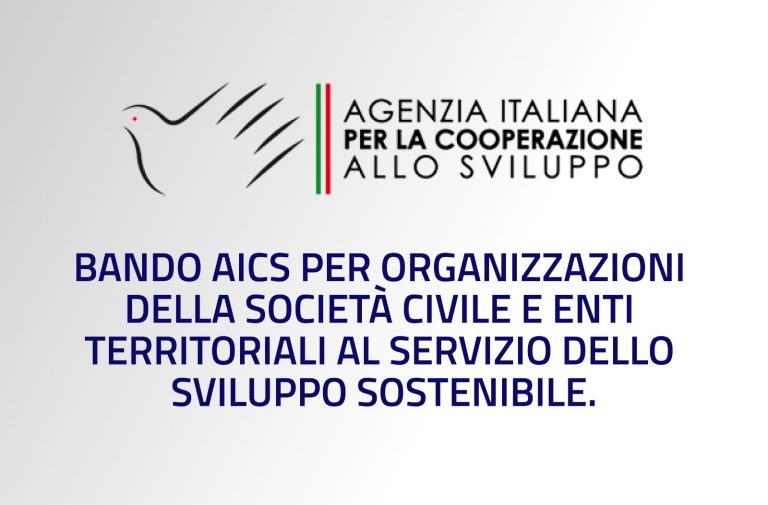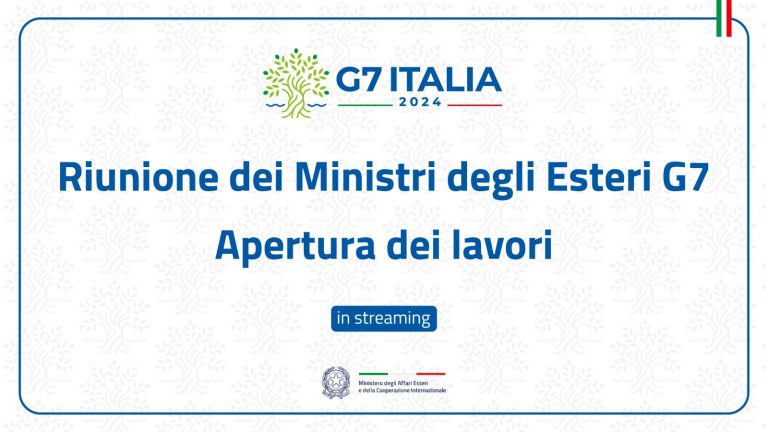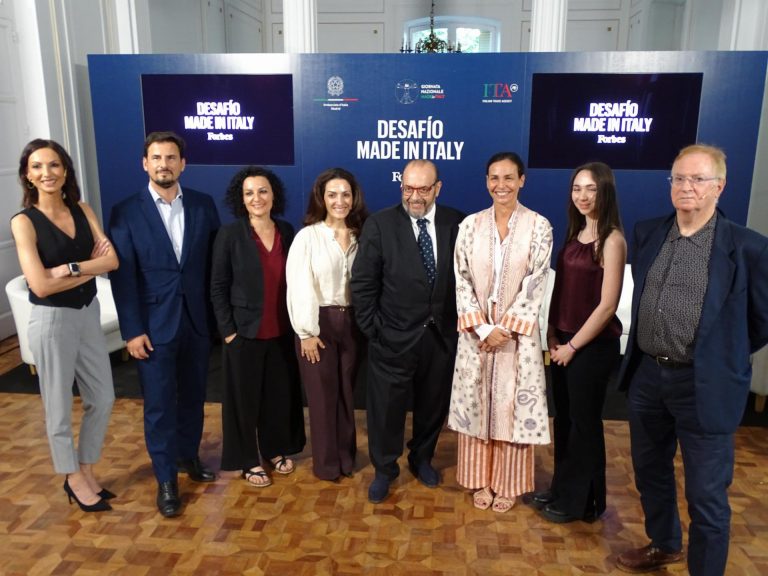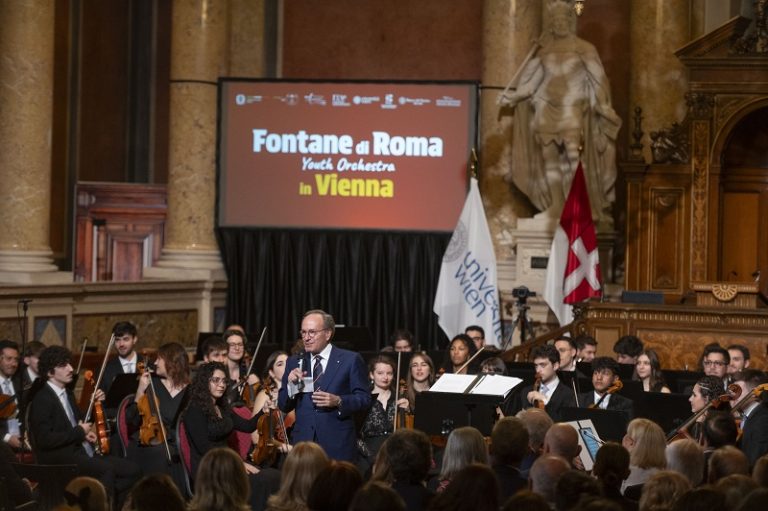Elaborato della studentessa Giulia Janni selezionato e presentatoin occasione dell’evento sulla Liberta’ religiosa
PROMOTING KNOWLEDGE:the role of Academia and mass media in spreading religious tolerance.
by Giulia Janni
“Your Christ is a Jew, your pizza is Italian, your coffee is Brazilian, your car is Japanese, your writing is Latin, your holiday is Turkish, your numbers are Arabic … and you blame your neighbour of being a foreigner?” A poster showed these lines on the wall in Berlin in 1994 and such words should make us think and wonder if our prejudice on which we base our opinion are actually valid.
On the10th of December 1948, the United Nations General Assembly proclaimed the Universal Declaration on human rights. The article 18 of such document claims that “ Everyone has the right to freedom of thought, conscience and religion; this right includes freedom to change his religion or belief, and freedom, either alone or in community with others and in public or private, to manifest his religion or belief in teaching, practice, worship and observance.”
Religious freedom represents therefore a fundamental and inalienable right of the human being. This leads to the fact that a religious belief is never to be considered neither as a detriment nor as an offense just because it is different from the prevalent belief of society. Nevertheless, 64 years after this document was released, conflicts deriving from different religious beliefs still play a major role in compromising global peace. The freedom to show one’s proper religion is still ignored in many countries. Most people in these societies are extremely limited and are unable to contribute to the progress of their countries.
Nowadays, an increasing number of religious conflicts occurs in Northern Africa, Middle East or India. Starting from the 2011, the considerable number of 32 Tibetan monks set fire to themselves in order to fight against the repression of their own religion, the Buddhism, brought ahead by the Chinese government. Further examples of how religious intolerance may lead to conflicts, and thus affect the peace of several Countries, are represented by the apparently irresolvable conflict between Israelis and Palestinians, by the Christian massacres in Nigeria, but also by the recent rebirth of anti-Semite factions in Greek as well as in Hungary.
Restrictions to religious freedom totally concerns 2,2 billion people all over the world, even though the most serious ones are those in Africa and Asia where an increasing number of Christians is victim of terrorism. The fundamental problem, regarding the promotion and the safeguard of human rights in the field of religious freedom, is the intolerance that every year leads to the killing of a huge number of people just for the religion they support. Intolerance is otherwise fed by prejudice which indeed derives from ignorance.
Therefore, there is only one solution: education! In fact, through education every memory imprisoned in ignorance can be removed and the dialogue among religions can be promoted. Knowledge is a fundamental prerequisite for the dialogue, since thinking of our own beliefs not as the only possible and right, but as one among many, is absolutely necessary. The fundamental role in promoting reciprocal respect and interreligious dialogue is mainly played by Academia and mass media. These systems, advertising unbiased information, may lead to a major development in the cooperation and the research of a positive agreement, leading to a pacific and constructive coexistence.
Mass media allow the global spread of information, that otherwise could not be acquired by each social group, convey any sort of information and, above all, influence the public opinion.Therefore, in order to carry out their function in a proper way, mass media should ensure the wide circulation of information, their righteousness and variety. That is why it is advisable that every citizen learn to refer to different sources of information, in order to achieve a complete knowledge of all the facts that occur everyday.
It is thus unthinkable that governments and economical powers do not influence mass media in any way, in fact, all the information shared by newspaper, television and any other communications medium, either public or private, are then spread by single editorial staff which definitely has a specific political or ideological point of view. It is thus possible that this opinion may affect the way the news is communicated or omitted. Therefore, it is very important for every country to have a variety and plurality of information, in order to promote the debate among different positions and to produce independent judgment, with the aim of achieving a proper understanding of the problems concerned, avoiding aggression, violence and fanaticism.
In many cases, in fact, throughout history,the various political factions have exploited religious conflicts as an opportunity to achieve greater powers. A recent example can be represented by the tragic events that occurred in the former Yugoslavia in the 90s, when the governments took advantage of the conflicts among Catholics, Greek-Orthodoxies and Muslims who all lived in a complex territory and just went through a strict dictatorship. Yet, it is unthinkable that in such a developed society as that of today, discrimination against a particular group of the society that shares a belief different from the prevalent, is still occurring. The concept of diversity has always existed in human history, but it was scientifically proven only during the 50s with the discovery of DNA.
Today it is clear to everyone that each person is different from another, no one is the same, notwithstanding the shared opinions, the native country, the professed religion.Diversity should therefore be seen as a positive factor, diversity is synonymous with life.Life exists thanks to diversity and the latter needs dialogue to interact, expand and evolve. Each one of us must therefore acquire the concept of diversity as a personal enrichment. Becoming aware of different realities, either religious or not , helps us to understand who we really are and to relate to others in a more open and helpful way.
Every religion is different, yet all profess the love for our neighbor; thus religion is opposed to violence and should promote peace. Therefore, concerning the promotion of peace and inter-religious dialogue, the mass media, present throughout the world, play a fundamental role in the positive models dissemination of peaceful coexistence and constructive interaction among the different groups in society.
How can we learn to appreciate others in a society where more and more emphasis is given to programs as futile as Reality Shows, in which the key mechanism of success is precisely thediscrimination of the individual and its elimination? In fact, how could we possibly overcome these mechanisms which create an underlying aggressiveness within in our society where we need to fight each in every conceivable way? If we really define ourselves as promoters of a peaceful coexistence in the world, where wars and conflicts are no longer a concern and an anxiety in our lives, then we must first change our habits, even with regard to entertainment of the so-called “escape reality” genre.
The elimination of any sort of discrimination and fear of social diversity from mass media is absolutely necessary because this has a powerful conditioning effect on young adults, the newest portion population destined to design and shape a future society more democratic where respect and understanding of others can create a flourishing relationship between different religions. In a society that promotes peace, a serious plan of action is called for. This plan must aim for a successful cooperation, not only between governments, but also between different religions. A s a primary objective, the media must propose an environment where there is an open civilized debate to understand others with the hope of being able to live and work together.
Even more important than mass media, the educational system is crucial for the education of citizens to tolerance and respect for others and for the promotion of inter-religious dialogue. Schools play a vital role not only in the education of young people, but especially in the influence of opinions and behavior. In this case, you must delete the prejudice and hatred from textbooks for a correct and complete cultural education of young people.
As Jacques Delors says, one of the objectives of education is to”teachthe diversity of the human race, and at the same time educate the awareness of the similarities and interdependence of all human beings.Teaching young people to adopt the point of view of the other ethnic and religious groups, you can avoid the lack of understanding that leads to hatred and violence between adults.The teaching of the history of religions and customs can serve as a useful reference point for future behavior. “
Ignorance feeds discrimination and ultimately leads to violence. It is evident we need to spread a culture of freedom, of social justice, and democracy among young people firstto fight effectively racism and intolerance. School, therefore has a major role in this. Education enables young people to acquire awareness and understanding of the historical and political events that involve different religions. Through historical study of the evolution and transformation of different religions in the world throughout the centuries, a significant understanding of various beliefs can be achieved thus removing intolerance and contempt for diversity and the other.
Indeed, it is an increasingly widespread belief that precise and profound knowledge of religions and their belief-system can lead to religious freedom and promote forms of pluralism in our society. Here is my proposal: it would be very positive if, starting with the 27 European Union countries, nations and governments commit themselves to introduce the historyof religions,as a course in all schools given the already abundant presence of students from different cultures and religions. That’s what we need to start with: spreading knowledge and increasing understanding and respect!
If the whole world would accept this invitation, new generations will be more attentive and aware, more open to dialogue, and against any form of discrimination and intolerance. Religions could become a great resource of peace and tolerance,recognizing and accepting diversity as individual wealth for all people and contributeto the development of civilization as a whole. We can one day imagine an international peace, where faith, all faiths, will no longer be used as a lethal weapon.




